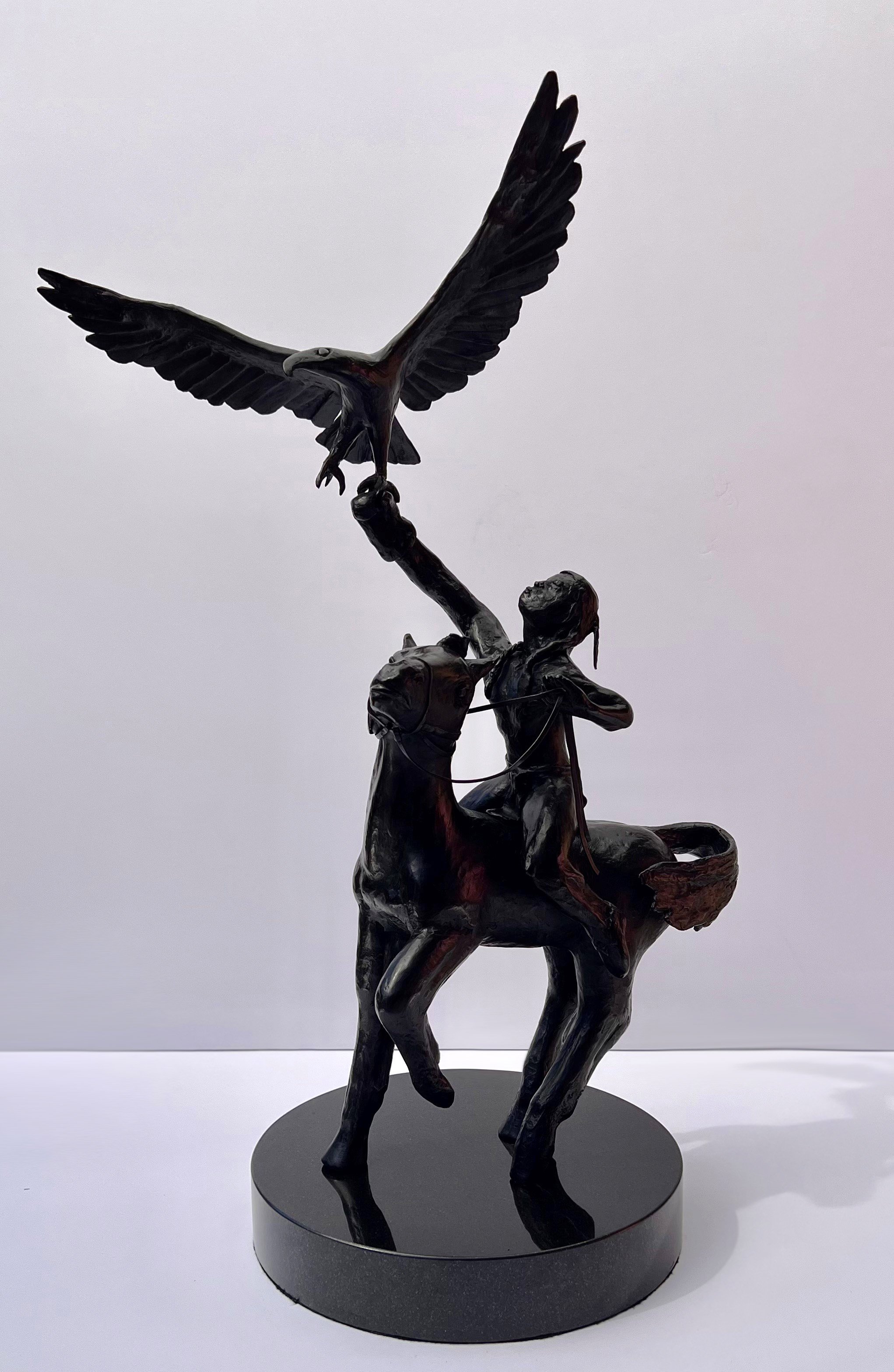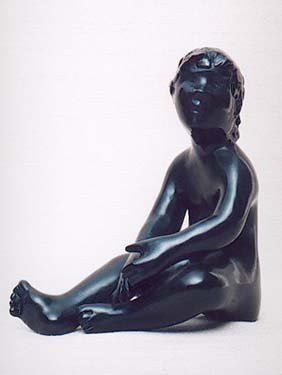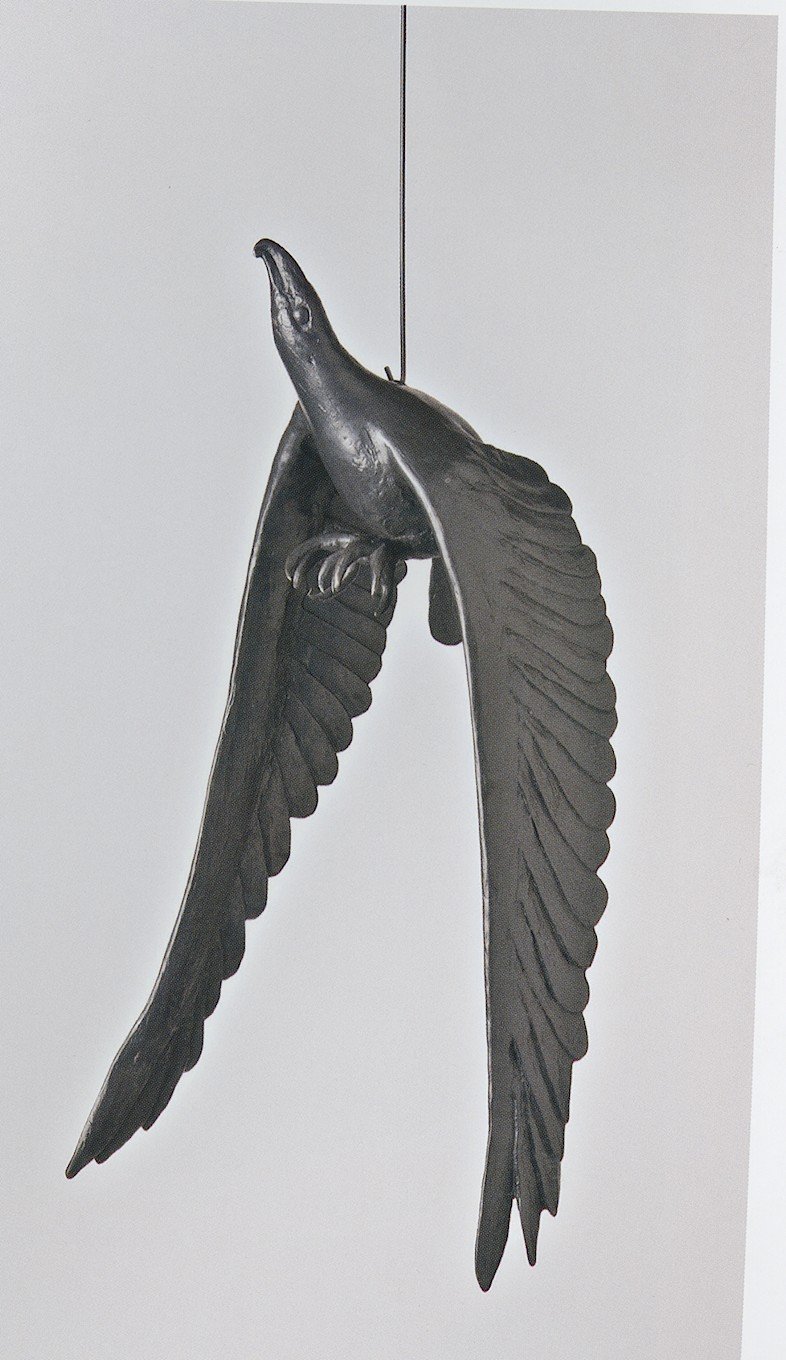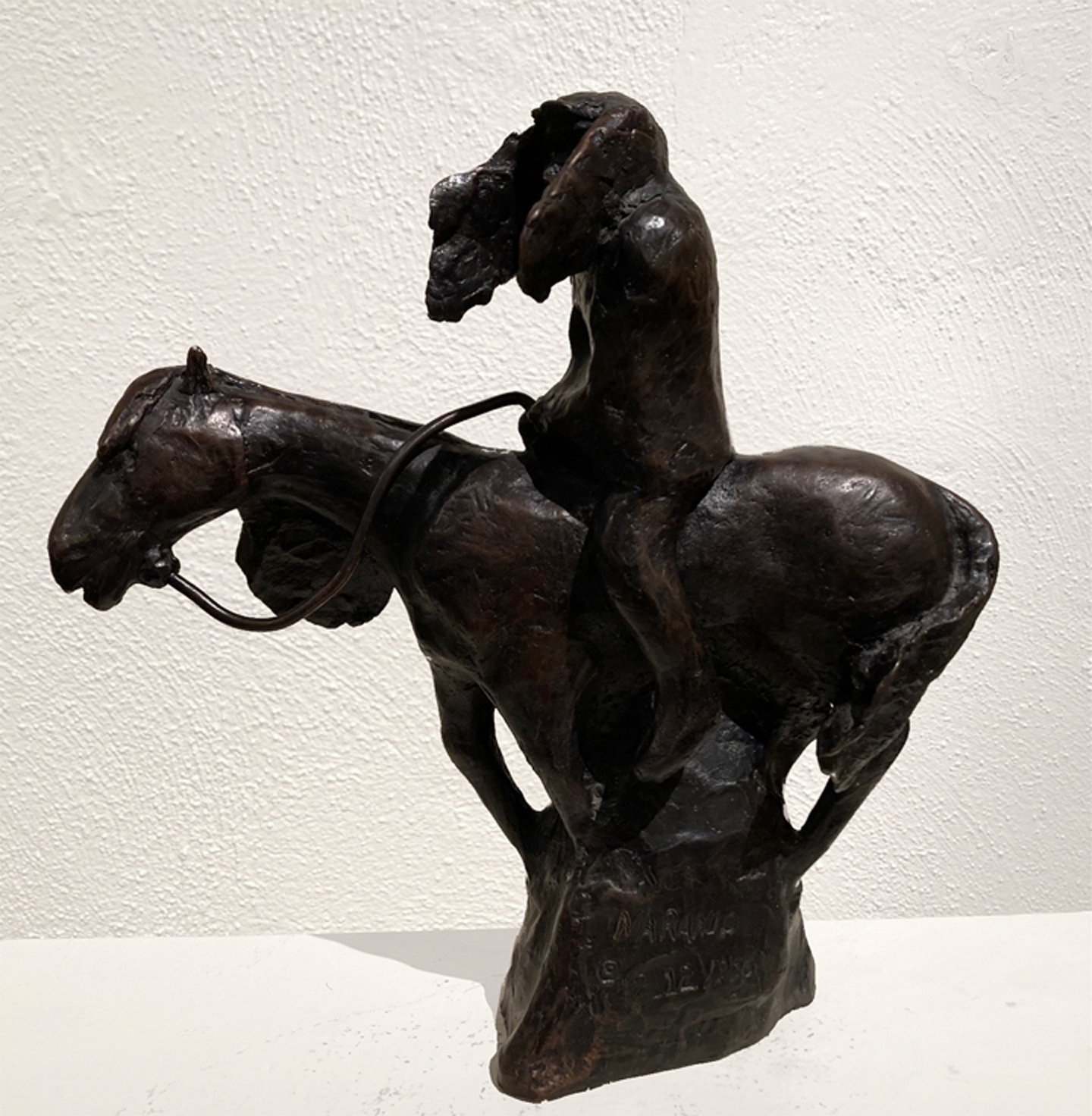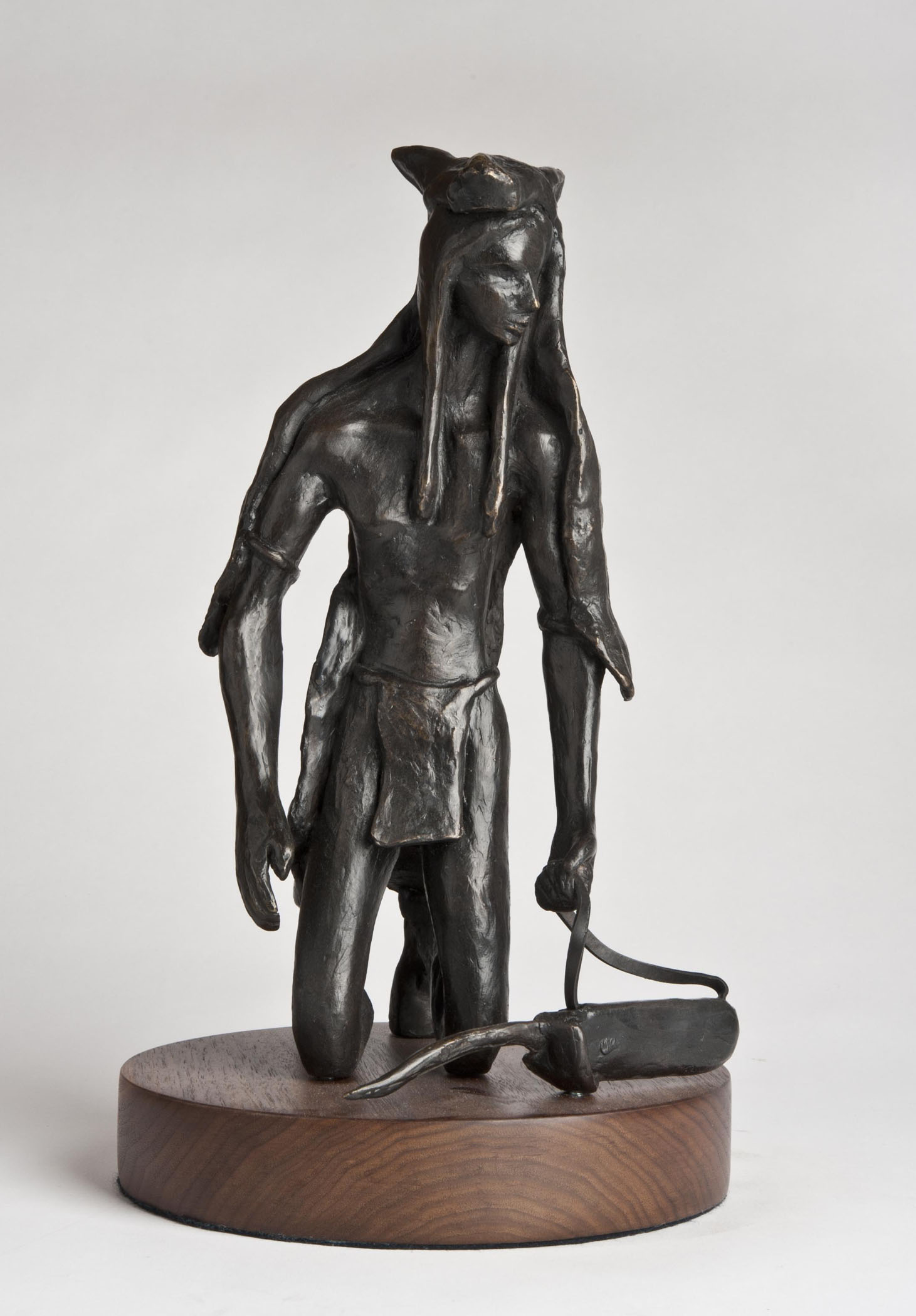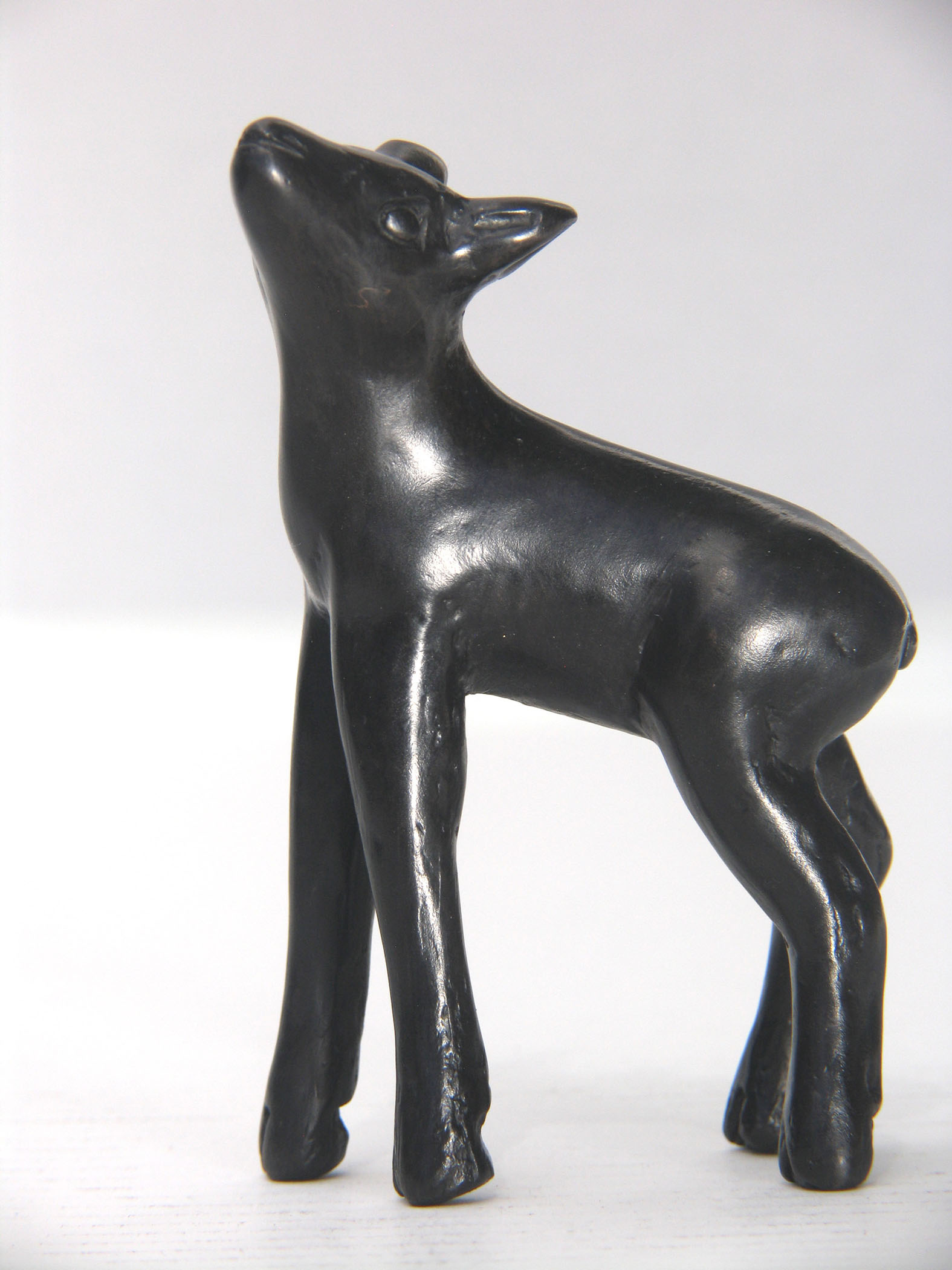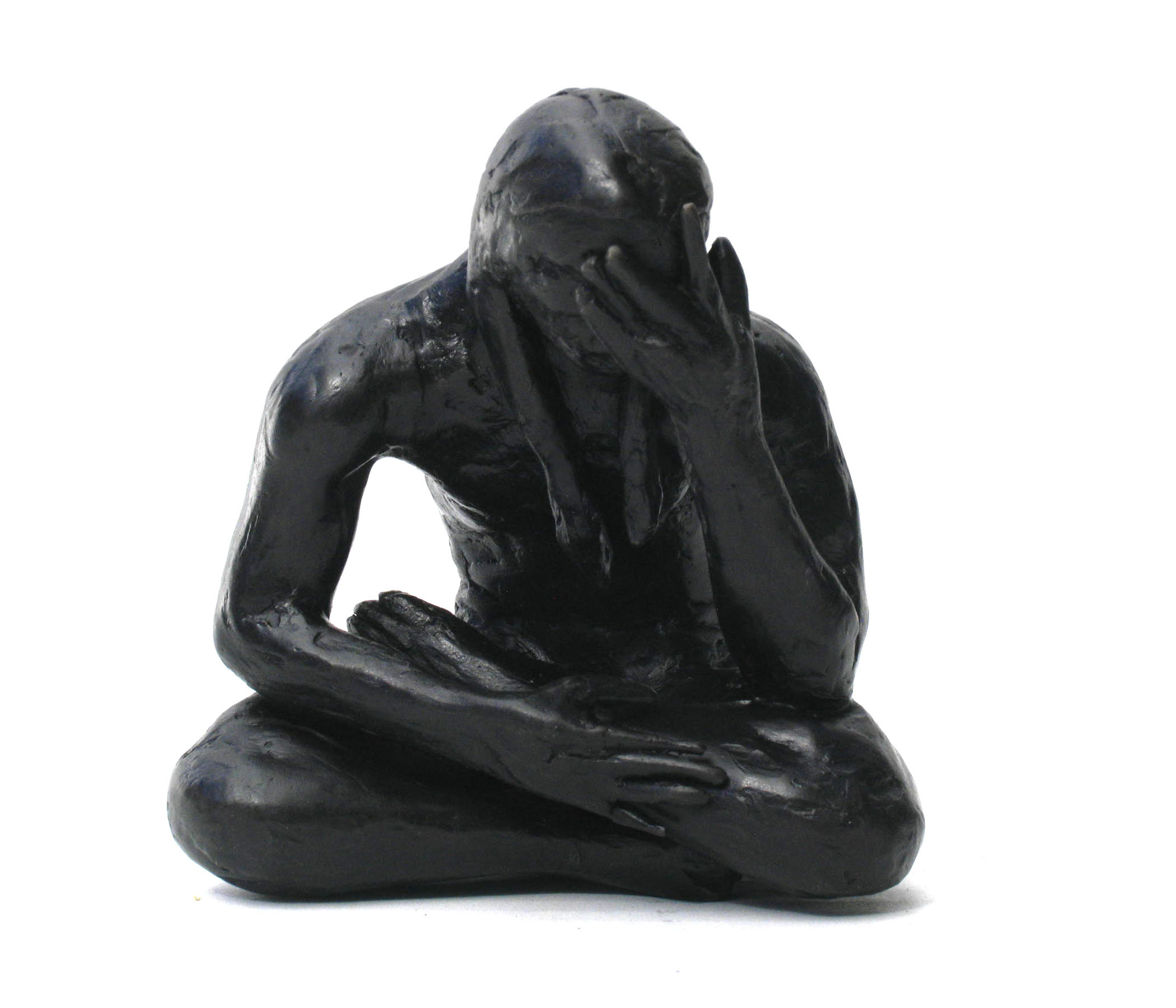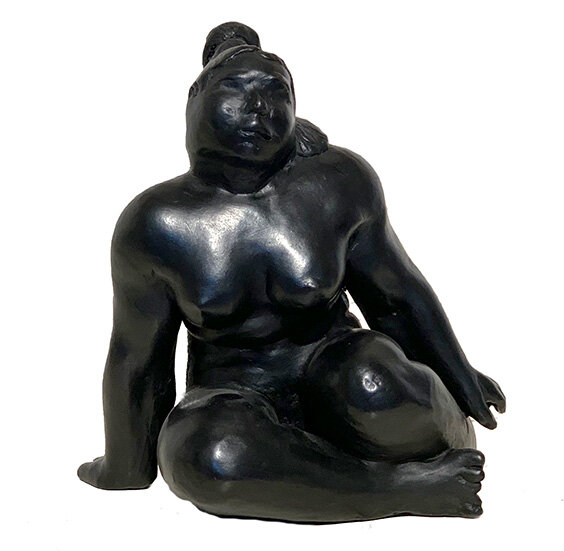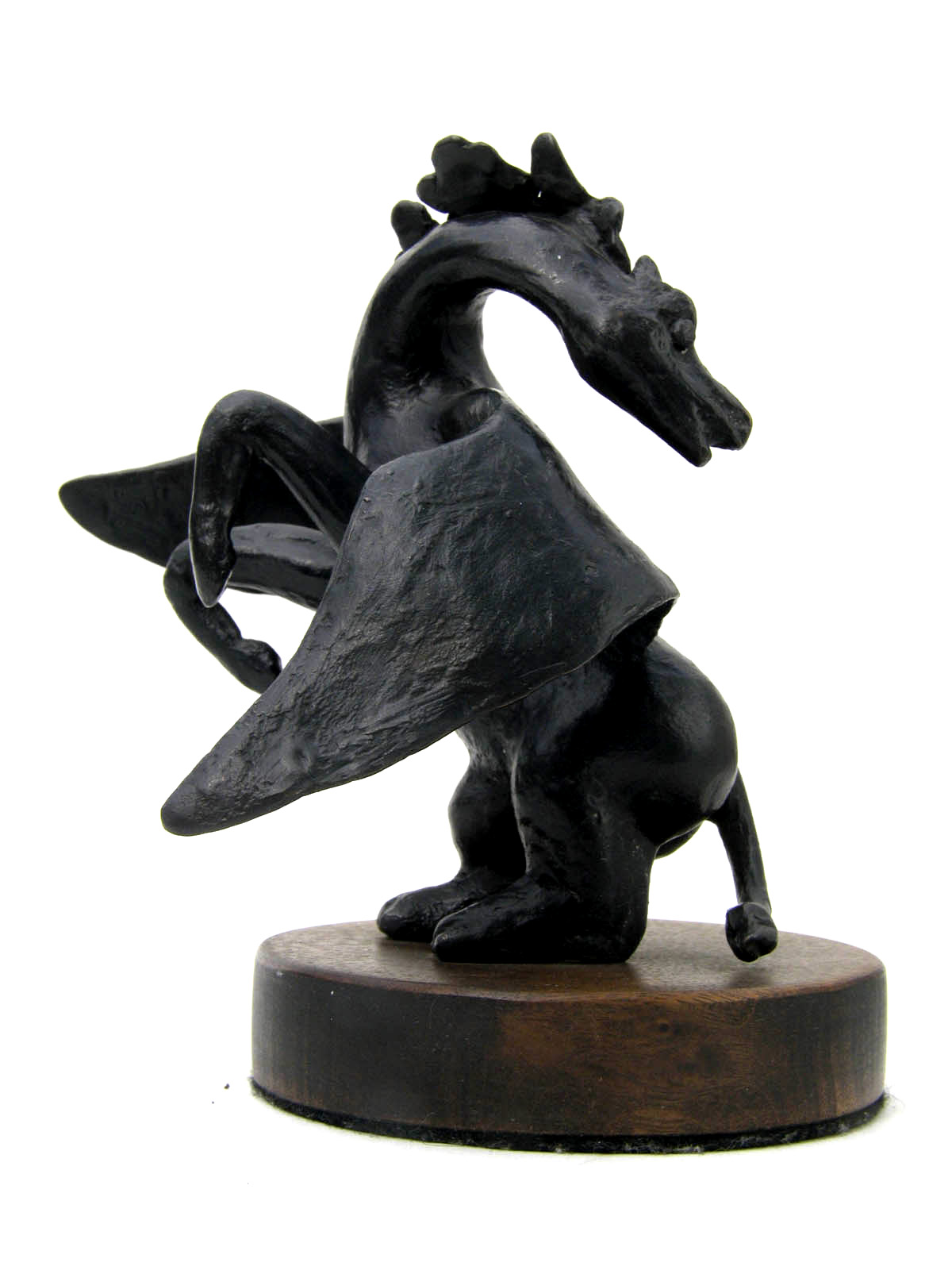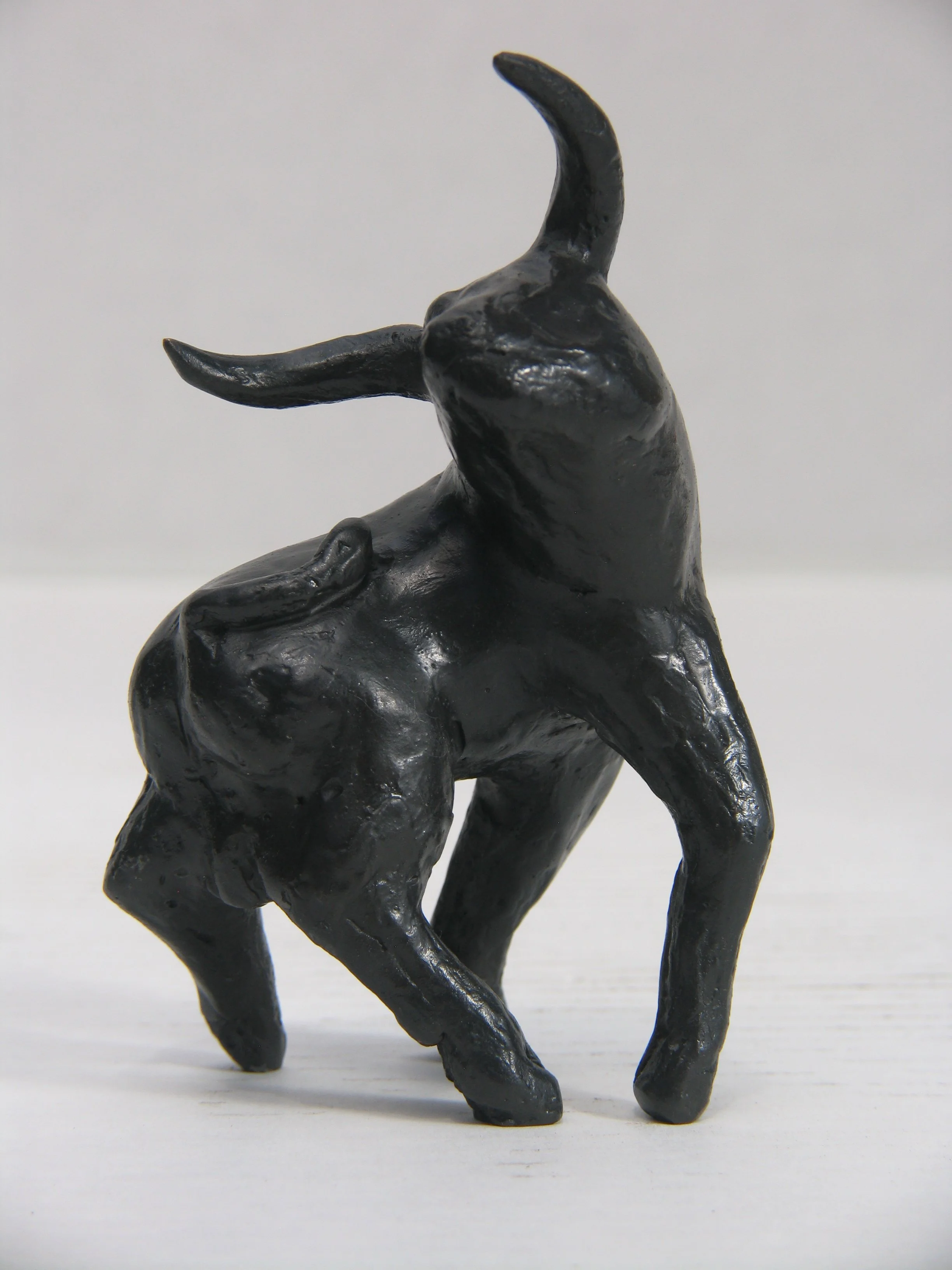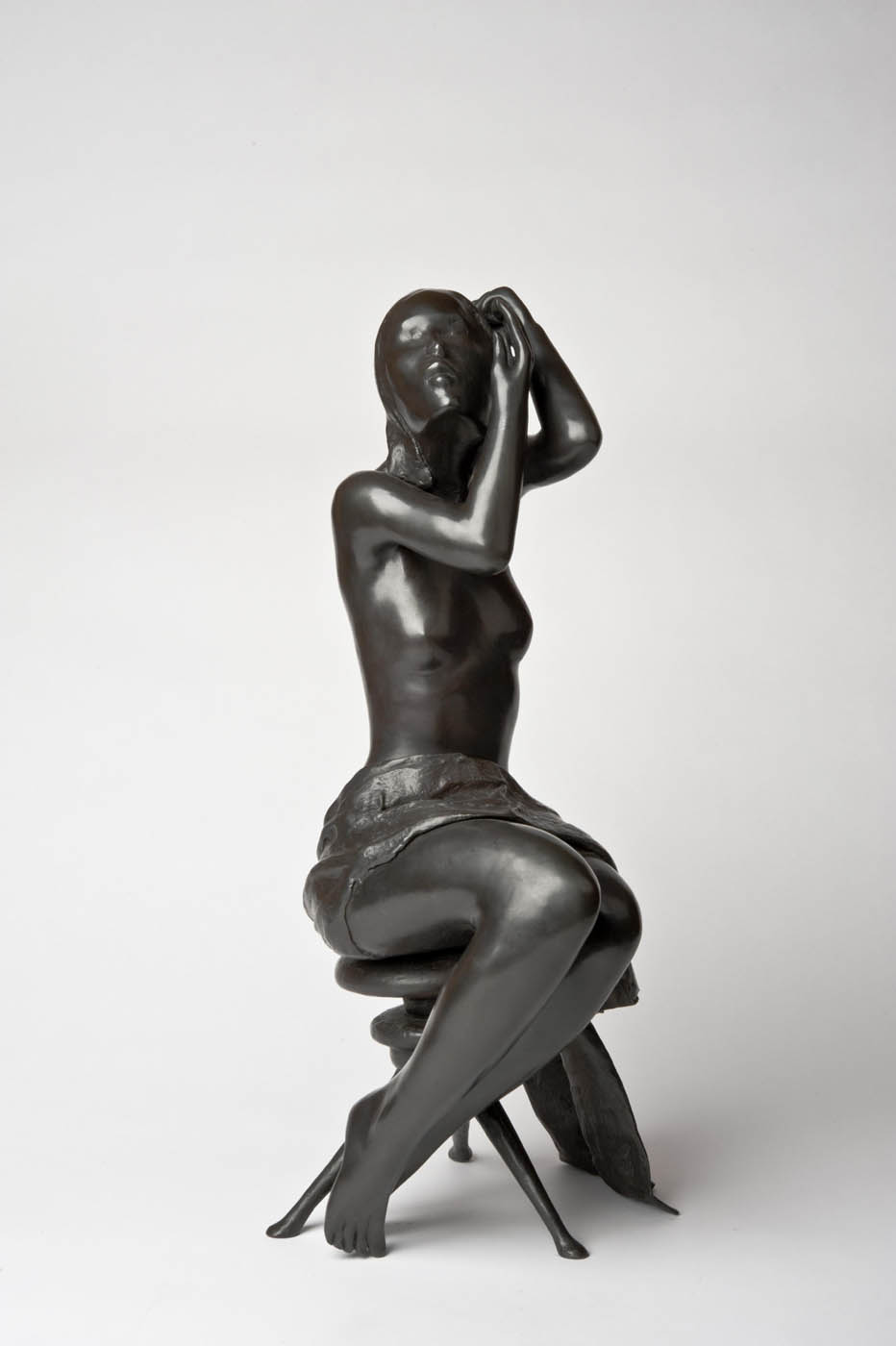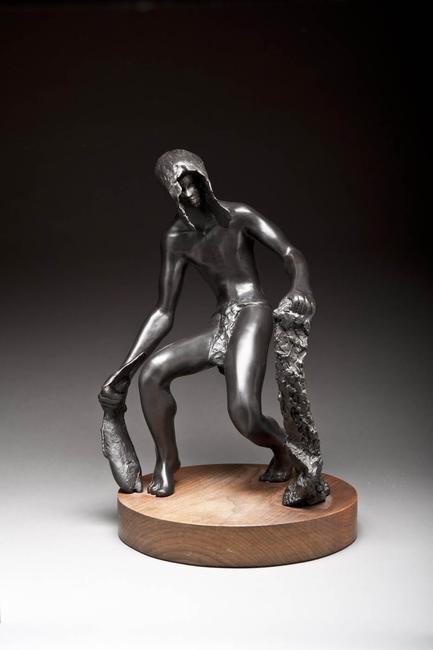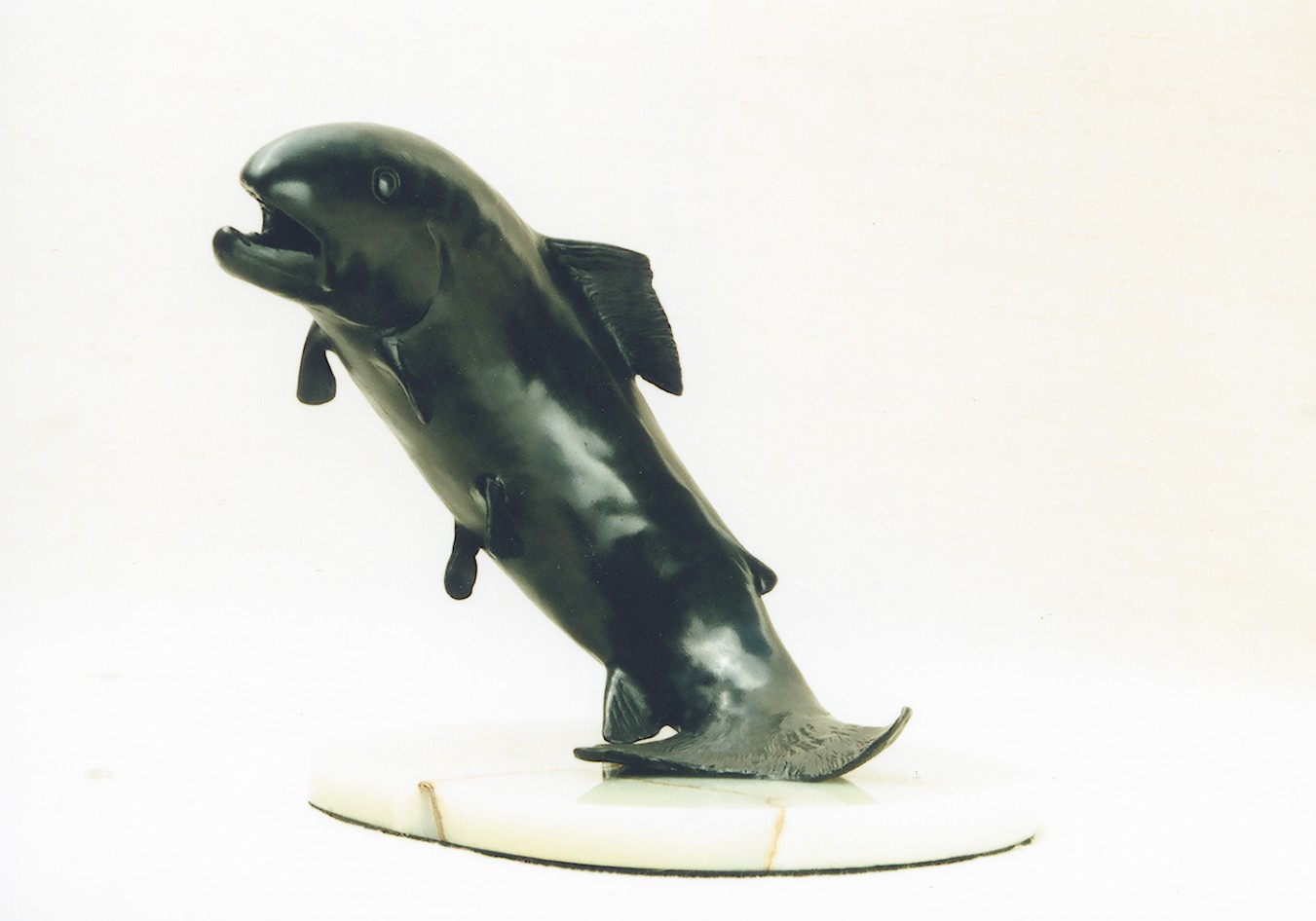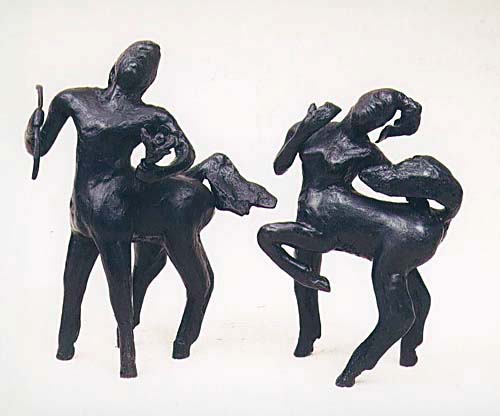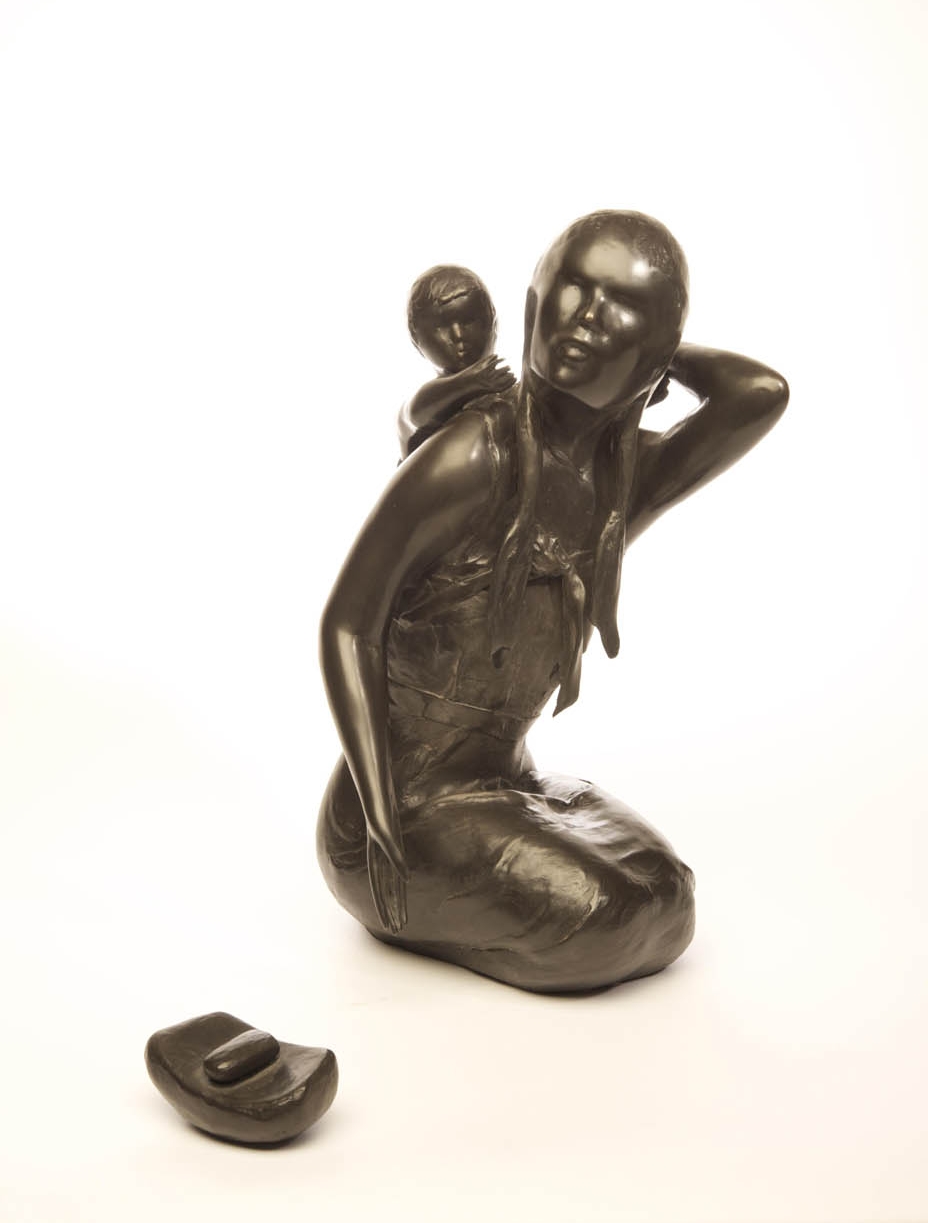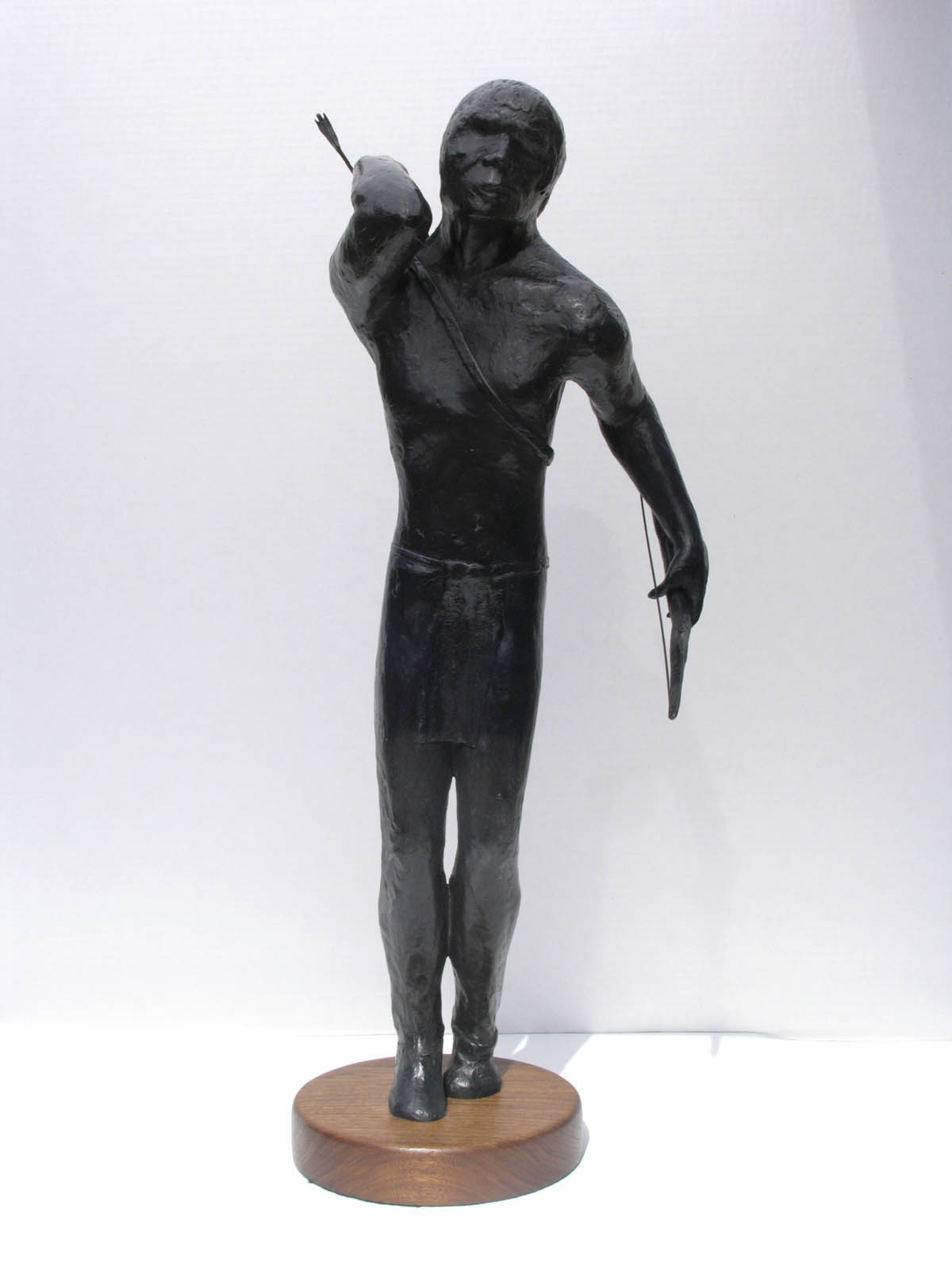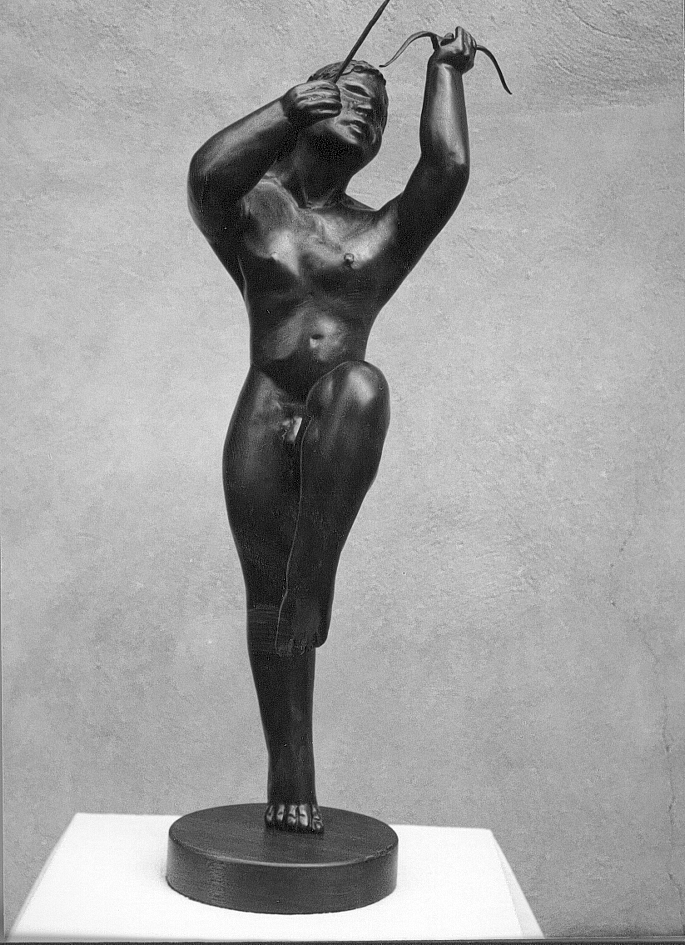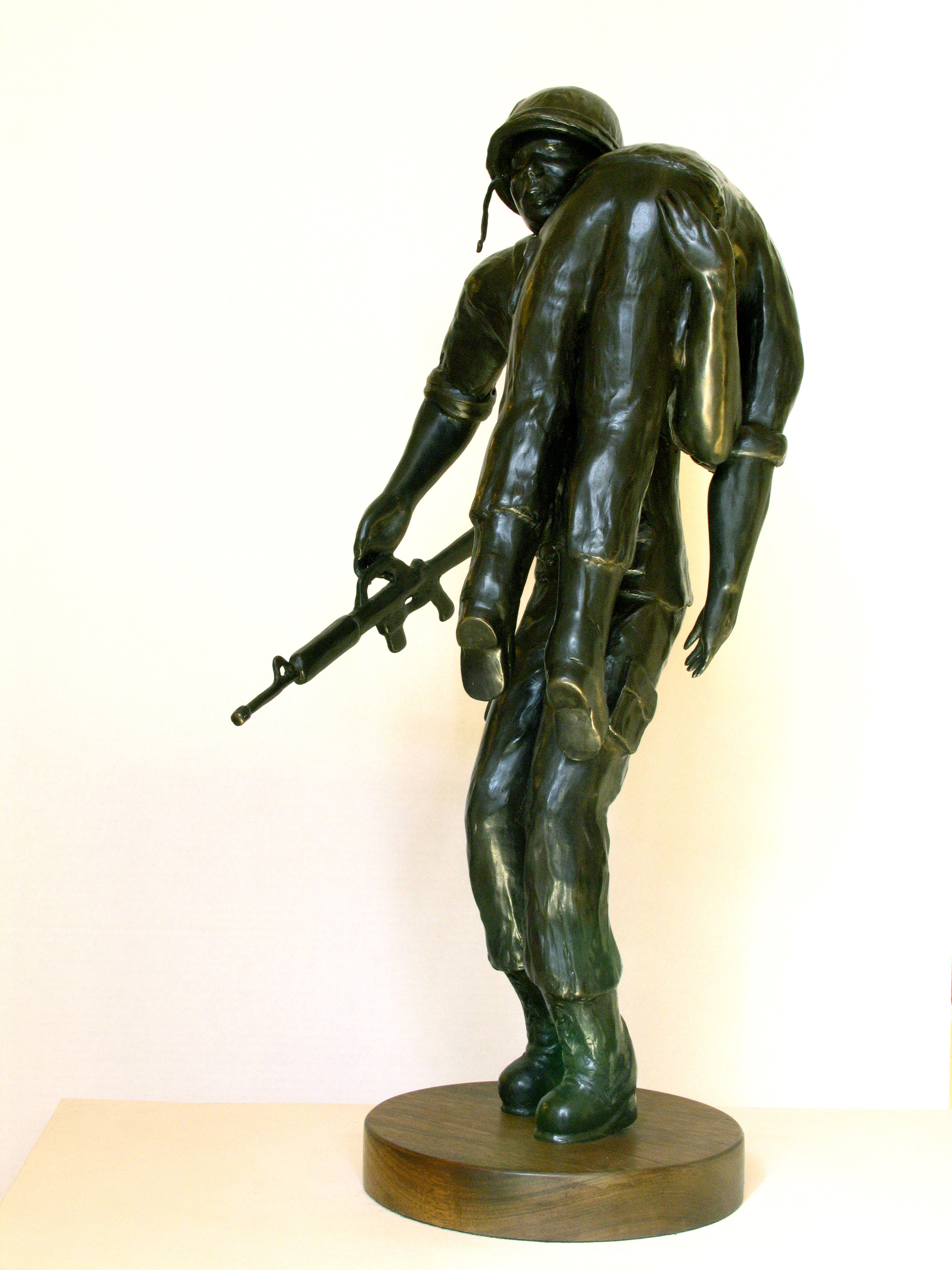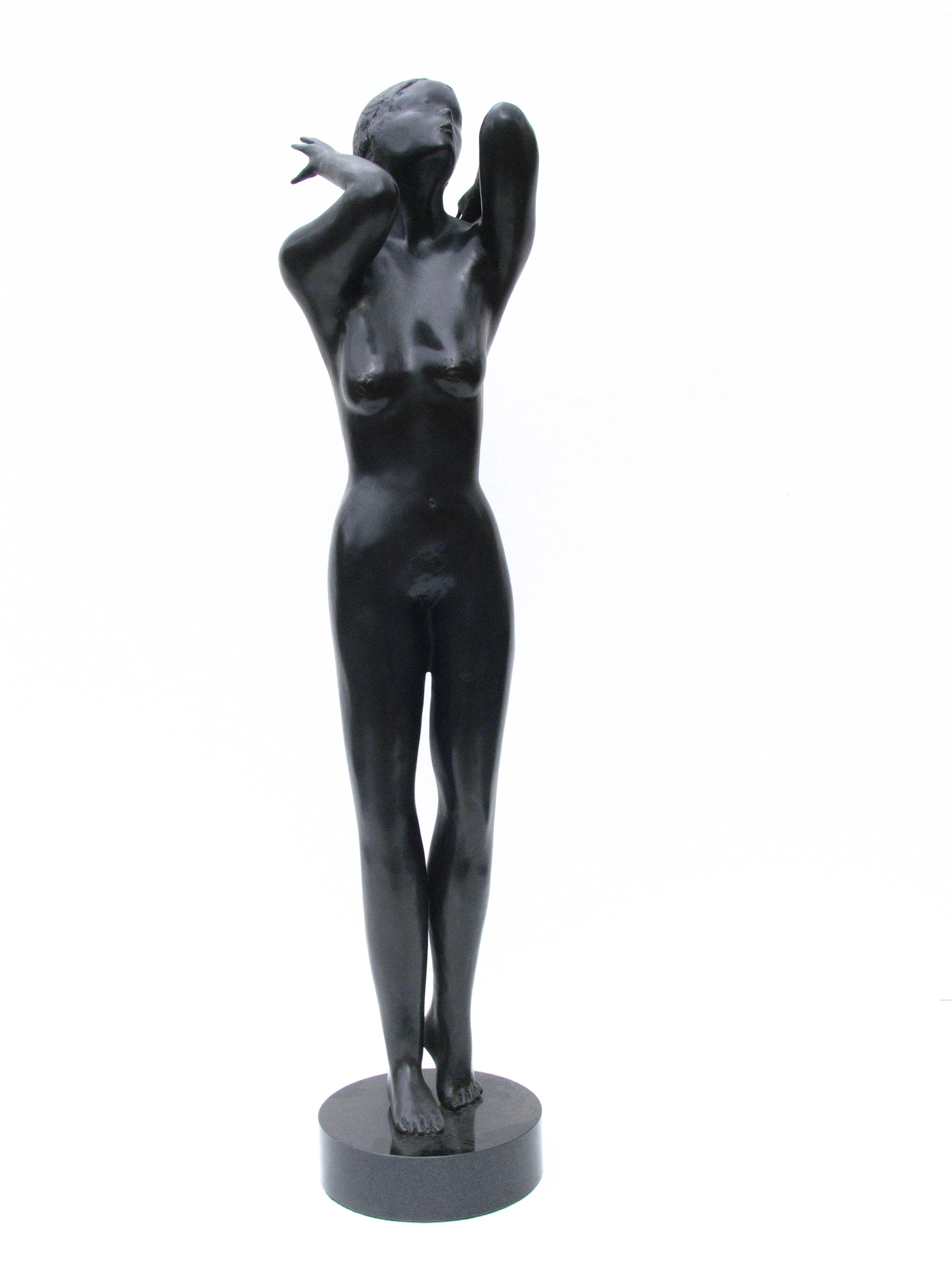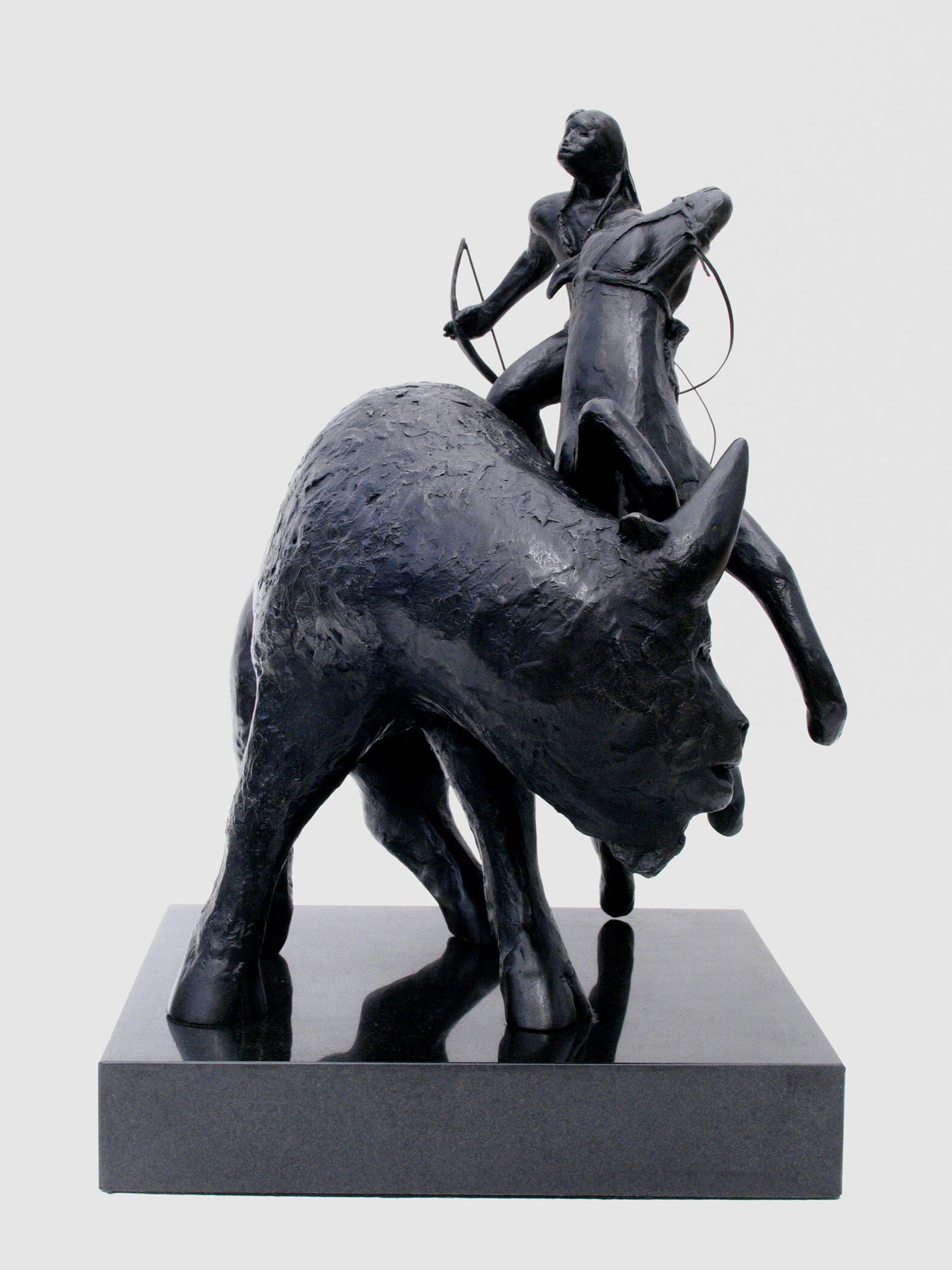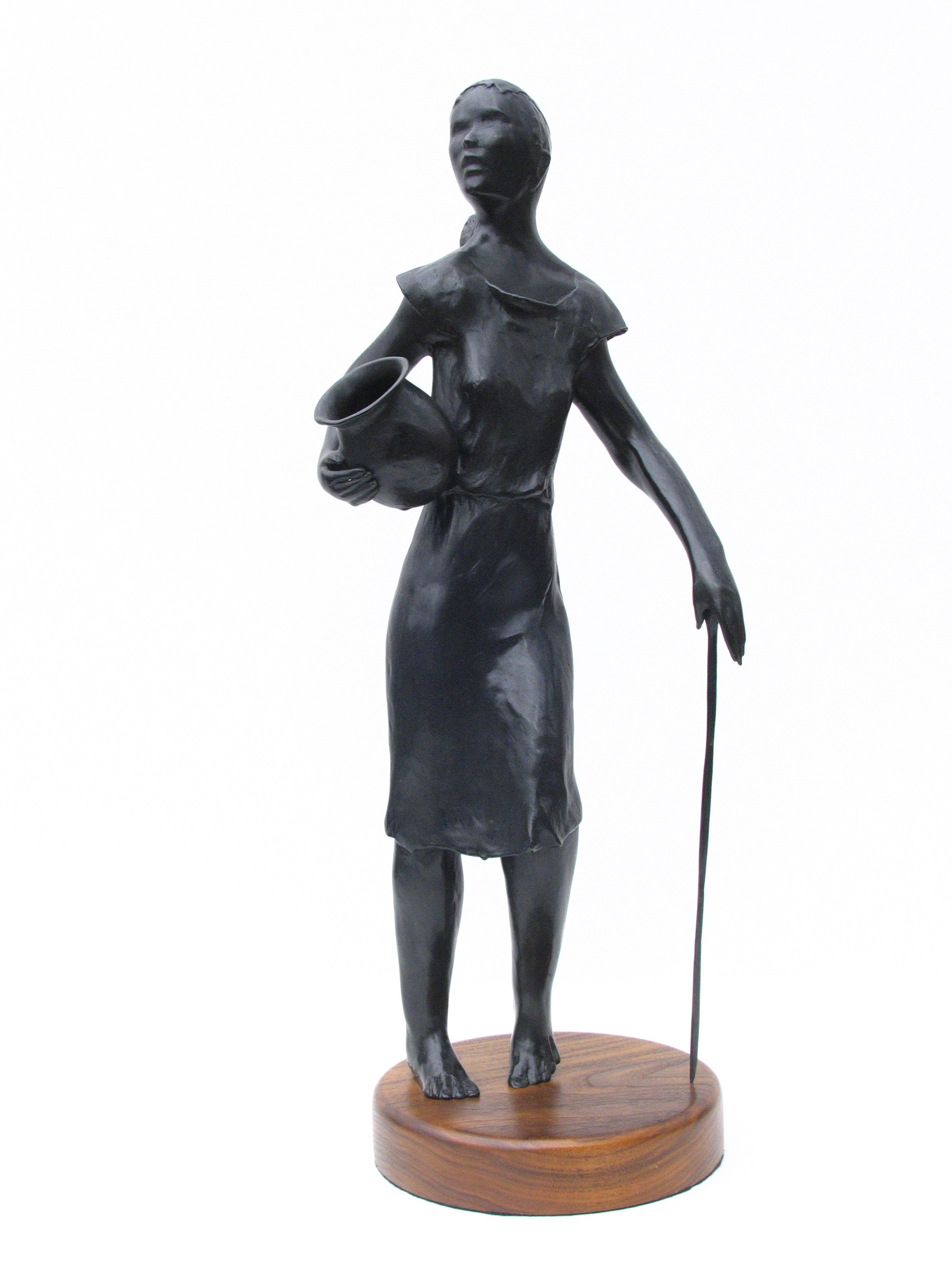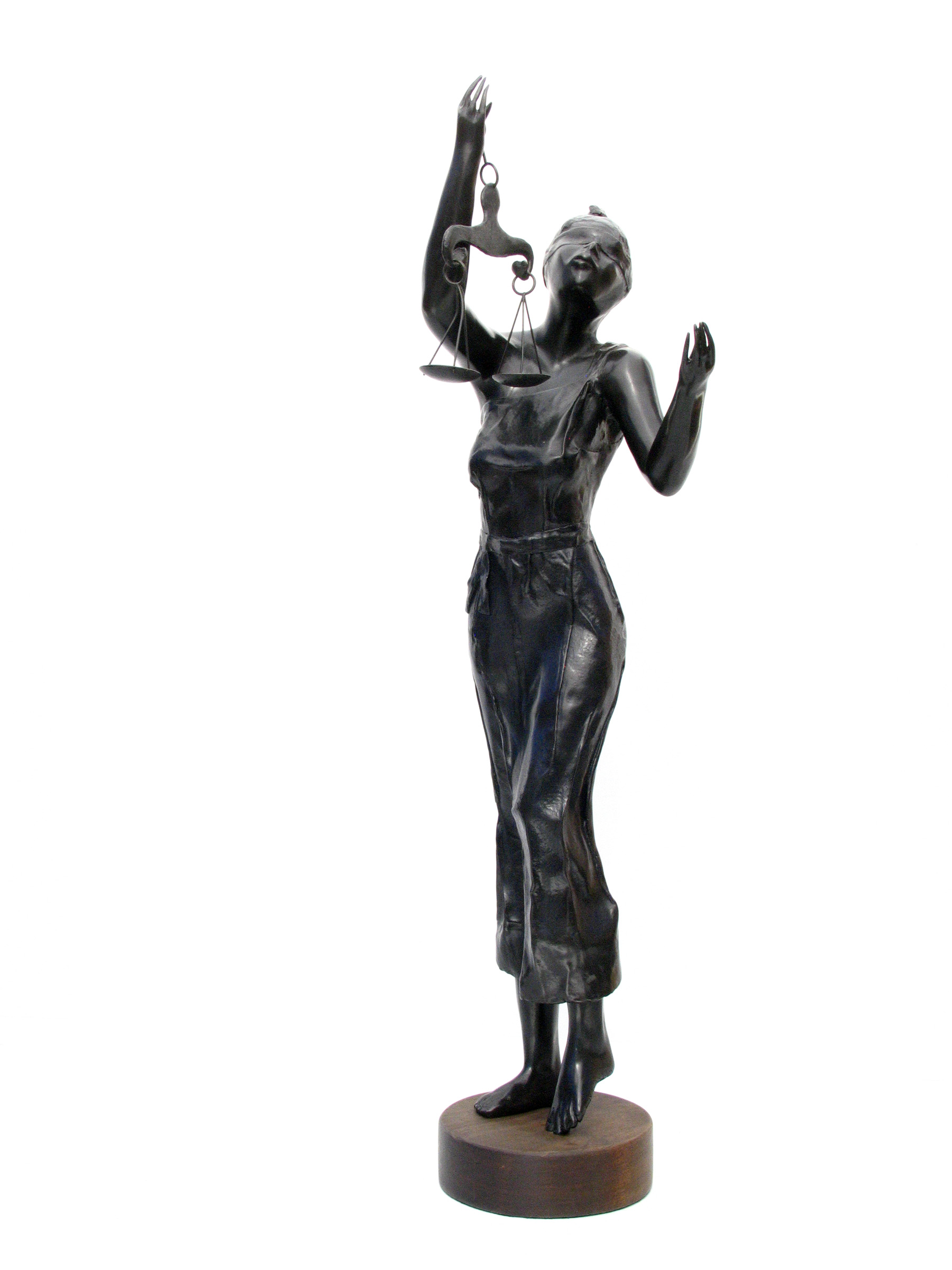Michael Naranjo
b. 1944
Being blind makes the pace of life slower; you can’t walk fast or grab for things quickly. Life is more gentle and soft and the change brought my creative energies out. — Michael Naranjo
In 1968, after just a few months in Vietnam, Naranjo was blinded by a grenade. While recuperating in the hospital in Japan, the wounded 23-year-old asked a volunteer for some modeling clay. He’d lost the use of his right hand; with his left, he sculpted a small figure and began his career as a sculptor.
The clay recalled a childhood pastime for Naranjo: sitting with his mother, Rose, a well-known potter, and modeling small animals. Naranjo, a Tewa Indian, lived in the Santa Clara Pueblo until the age of nine when his father accepted the pastorship at the Baptist Indian Mission in Taos. As one of ten children, Naranjo enjoyed the New Mexican wilderness with his siblings, exploring the land and hunting with his older brother.
Naranjo’s sculptures often feature the narratives of his childhood: native dances, eagles and buffalo, women carrying water. But his work is wide-ranging — he sculpts mythical creatures, such as mermaids and centaurs, as well as cherubs and nudes. The forms he creates are simple and bold, but the surfaces have a varied texture that viewers are encouraged to touch.
For over 40 years, Naranjo has sculpted stories from clay, using his left hand and no tools. He has received many awards, including the Distinguished Achievement Award from the National Press Club in Washington, D.C., and the LIFE Foundation's Presidential Unsung Hero Award. His work is included in collections in the Heard Museum, the White House, and the Vatican.

